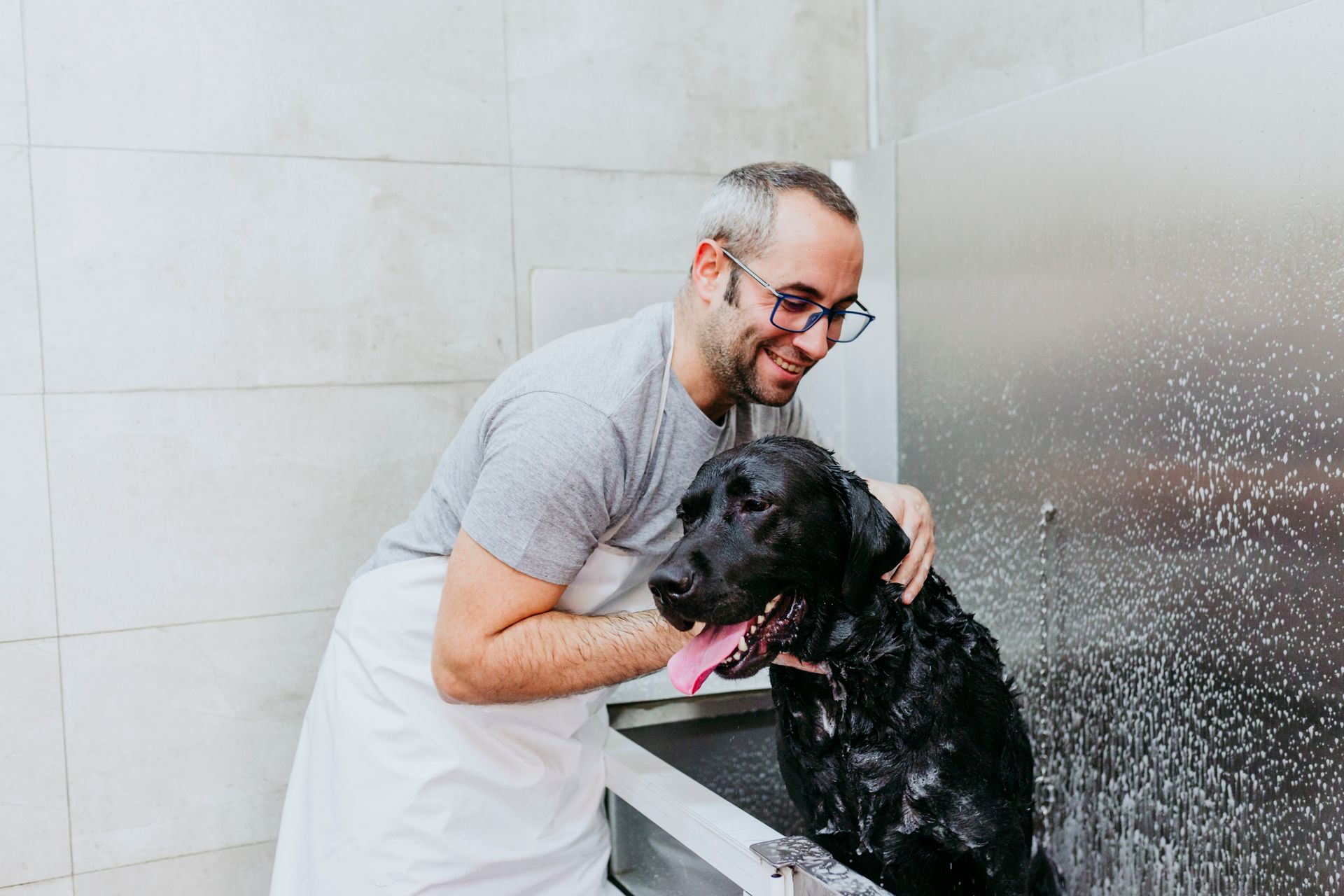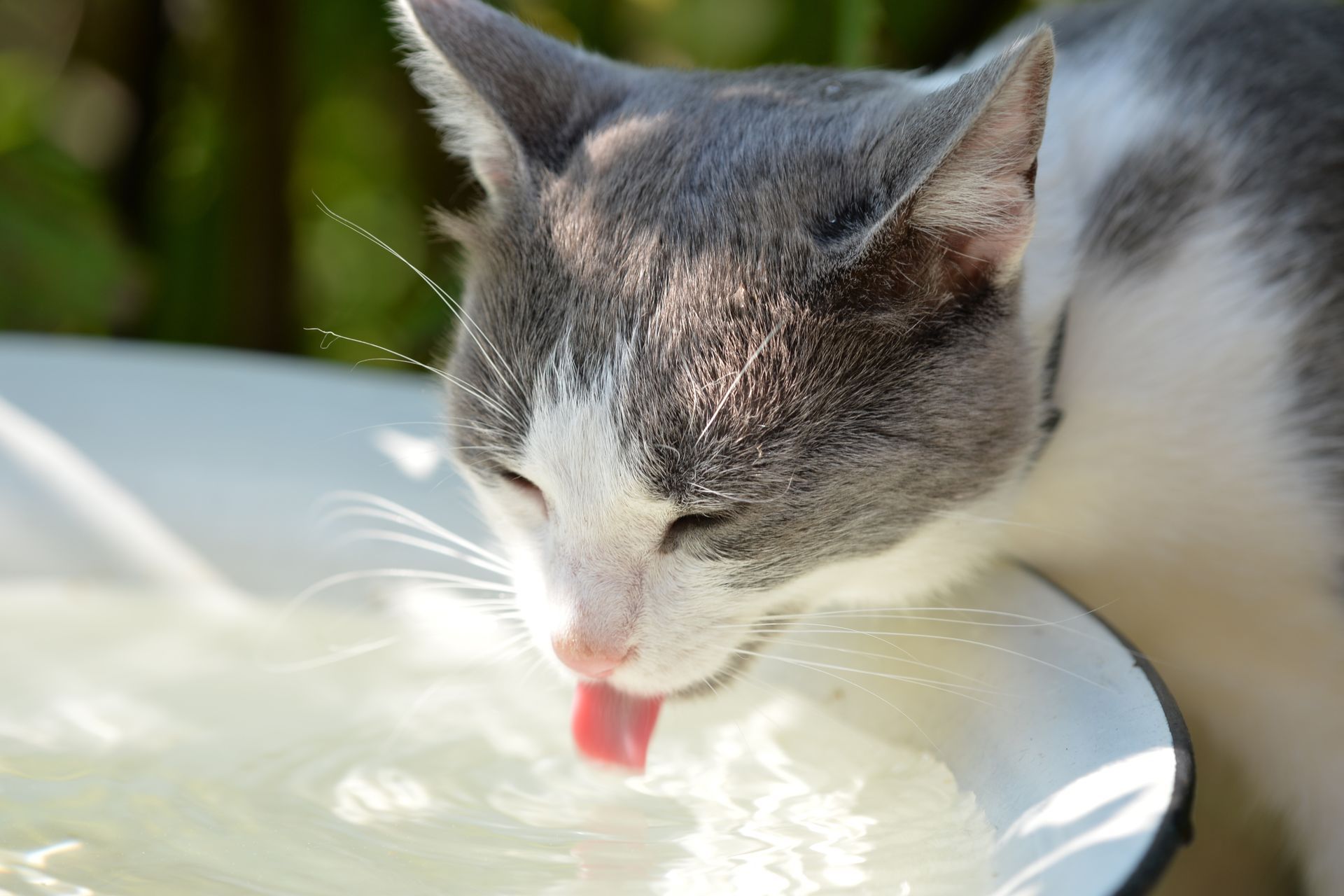3964 TX -121, SUITE #100
LEWISVILLE, TX, 75056
LOCATED AT OLIVIAN AT THE REALM — ENTRANCE THRU WINDHAVEN PARKWAY
Dental Care for Pets: More Than Just a Smile
When we think about keeping our pets healthy, we often focus on their food, exercise, and routine checkups. But one aspect of pet care that many pet owners overlook is dental health. Just like in humans, poor dental hygiene can lead to more serious health issues for your furry friend. Regular dental care doesn’t just keep their smile bright—it also prevents infections, bad breath, and even heart disease. At Castle Hills Animal Hospital, we’re here to help you understand why dental care is a crucial part of your pet’s overall well-being and provide tips for keeping their teeth healthy at home.
Why Dental Care for Pets Matters
We all love a good cuddle with our pets, but no one enjoys being met with bad breath or the sight of painful gums. Dental health in pets is often underestimated, but it can have a major impact on their overall health. Without proper care, your pet can develop a range of dental problems, from mild discomfort to serious conditions that affect their internal organs.
Here are some of the most important reasons why dental care for pets is more than just a cosmetic issue:
1. Preventing Infections and Gum Disease
Just like humans, pets are susceptible to plaque buildup, which can lead to gingivitis, the early stage of gum disease. If untreated, gingivitis can progress to more serious periodontal disease, which causes infection and damage to the gums, teeth, and surrounding bone. This infection can spread into the bloodstream, affecting organs like the kidneys, liver, and heart.
Routine dental checkups at Castle Hills Animal Hospital can help prevent these issues by keeping your pet’s teeth and gums clean and healthy. Early intervention can stop problems before they become more severe, reducing the need for expensive treatments later on.
2. Bad Breath (Halitosis)
We all know that one of the most obvious signs of poor dental hygiene in pets is bad breath. But did you know that it could be a sign of a more serious issue? Bad breath, or halitosis, is often caused by bacteria in the mouth that feed on food particles and produce foul-smelling compounds. This bacteria can also lead to plaque and tartar buildup, making the problem worse over time.
Regular dental care prevents the buildup of bacteria and keeps your pet’s mouth smelling fresh. It’s a win-win for both your pet and your nose!
3. Preventing Heart Disease
You might not realize it, but your pet’s dental health is linked to their heart health. When gum disease progresses, harmful bacteria can enter the bloodstream and affect vital organs, including the heart. This can lead to conditions like endocarditis, which is an infection of the heart’s inner lining. In severe cases, dental infections can even result in heart failure.
Regular dental care and checkups help to prevent bacteria from spreading to your pet’s heart, significantly reducing the risk of heart disease.
4. Avoiding Pain and Discomfort
Dental problems, such as cracked teeth or infected gums, can cause significant pain and discomfort for your pet. Unfortunately, pets are masters at hiding pain, so it can be difficult to tell when they’re suffering. By maintaining their dental health, you can help prevent these issues from arising and ensure your pet stays pain-free.
At-Home Dental Hygiene Tips for Your Pet
While regular visits to Castle Hills Animal Hospital for professional cleanings are essential, there’s a lot you can do at home to support your pet’s dental health. Here are a few simple tips to help keep your pet’s teeth and gums in top shape:
1. Brush Your Pet’s Teeth
Brushing your pet’s teeth may sound like a challenge, but it’s one of the best ways to maintain their dental health. Use a toothbrush and toothpaste designed specifically for pets—never use human toothpaste, as it contains ingredients that can be harmful to animals.
Start slowly, allowing your pet to get used to the brushing sensation. Begin with just a few teeth at a time and gradually increase the amount of time you spend brushing. With patience and practice, most pets will adjust to this routine.
2. Provide Dental Chews and Toys
Dental chews and toys can help reduce plaque buildup while satisfying your pet’s natural chewing instinct. Look for chews that are designed to improve dental hygiene, as these can help clean teeth and massage gums. Be sure to choose appropriately-sized chews for your pet to avoid choking hazards.
3. Offer a Balanced Diet
A nutritious, balanced diet plays a crucial role in your pet’s overall health, including their dental health. High-quality pet foods help keep teeth strong and healthy. Some pet food brands even offer formulas designed specifically for dental health, which can help reduce plaque buildup and support gum health.
4. Regularly Inspect Your Pet’s Teeth and Gums
Make it a habit to inspect your pet’s teeth and gums regularly. Look for signs of redness, swelling, or bleeding, and check for any abnormal growths or lesions. If you notice any changes, contact Castle Hills Animal Hospital right away for a thorough examination.
When to Visit Castle Hills Animal Hospital for a Professional Cleaning
Even with the best at-home care, your pet will still need professional dental cleanings to maintain their health. During these visits, our veterinary team will remove plaque and tartar buildup, clean hard-to-reach areas, and assess the health of your pet’s teeth and gums. We may also perform additional treatments if necessary, such as extracting damaged teeth or performing more extensive dental work.
If your pet is experiencing signs of dental issues—like bad breath, difficulty eating, or drooling—don’t wait to schedule a professional cleaning. The sooner we address the issue, the better the outcome for your pet.
Conclusion: Keep Your Pet’s Smile Healthy for Life
Dental care for pets is an essential part of their overall health and well-being. By preventing infections, bad breath, and potential heart disease, you can help your pet live a long, healthy life. Regular checkups, brushing, dental chews, and a balanced diet will go a long way in maintaining their dental hygiene.
At Castle Hills Animal Hospital, we’re dedicated to keeping your pet’s smile bright and their health in check. Schedule a dental exam today and give your furry friend the care they deserve!
- Internal Linking: Check out our services page for more information on our dental care services.
- External Linking: Learn more about the importance of pet dental care from The American Veterinary Dental College.





Castle Hills Animal Hospital provides same day and emergency appointments for Lewisville, The Colony, Carrollton, Plano, Frisco, and surrounding areas.
Get in Touch
Castle Hills Animal Hospital | All Rights Reserved
Privacy Policy | Accessibility | Site Design by Infinity Medical Marketing






